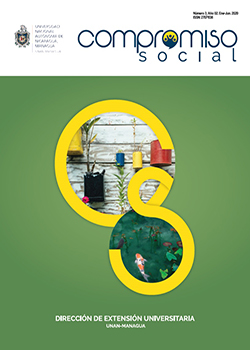Globalization and Education in Nicaragua, impact on the educational system and transformation of school cultures
DOI:
https://doi.org/10.5377/recoso.v2i3.13431Keywords:
Education, Globalization, school cultures, educational systemsAbstract
The article addresses how globalization has influenced Nicaraguan education, particularly the impact on the educational model and school cultures in the country. It starts from the fact that globalization is not only an economic and communicational phenomenon, but also encompasses strategic spheres of social life such as education. A critical view of the educational phenomenon is fostered from the transformations experienced by the globalization process begun in the 1990s. A review is made of the conditions of education in Nicaragua from the neoliberal period that meant a moment of structural reforms to education, accompanied by the idea that education is a burden on public spending and not a strategic factor of development. human. Finally, the new model of education managed by the Government of Reconciliation and National Unity is outlined, which gave way to an integrating vision that places the educational subject in a leading and demanding social role. The contribution of this article focuses on offering an alternative perspective on education in Nicaragua in which it is proposed to transform the educational model, which is committed to an education located in each sociocultural context.
2003
Downloads
Published
How to Cite
Issue
Section
License
Copyright (c) 2020 Universidad Nacional Autónoma de Nicaragua, Managua (UNAN-Managua)

This work is licensed under a Creative Commons Attribution-NonCommercial-ShareAlike 4.0 International License.




